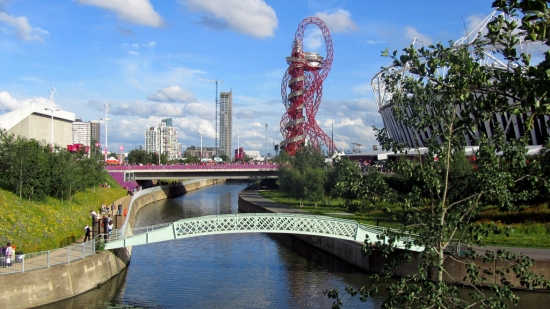The London Olympics appear to have had positive impact on the British economy, with sports chains such as Halfords and Sports Direct reporting massive boosts to profit in the last financial year as a result of the Games. Yet it appears that more than just the retail industry has benefited from the Summer of Sport, with new research released this week claiming that the overall economy has gained a boost worth just short of £10 billion in trade and investment.

The report – entitled Inspired by 2012: The legacy from the London 2012 Olympic and Paralympic Games – examines the achievements made by British firms in the wake of last summer. So far £1.5 billion worth of overseas opportunities, such as construction and organisational work for the Rio 2016 Olympics, has been offered to firms involved in the London Games.
Furthermore, foreign investment in the UK has lifted dramatically in the past 12 months. While much of this can be attributed to the improvements in the economic situation and the ongoing Eurozone Crisis, many firms claimed that their decision to invest in the UK was directly influenced by the smooth running of the Olympics and Paralympics.
In all, around £2.5 million in foreign investment has served to strengthen the economy, with current projects in Battersea and the Royal Docks cited as particular examples of the Olympic Legacy.
Prime Minister David Cameron praised the ingenuity of British firms, saying they are “harnessing the Olympic momentum and delivering the lasting business legacy of the Games.”
Business Secretary, Vince Cable, added; “A lot of people were very cynical about this, but as a result of all the work that was done we have this very considerable amount.”
However, the report has launched a flurry of debate amongst business experts, with many claiming that there is no way of proving the Games were directly responsible for subsequent investment. Others claim that it is simply too early to tell whether the Olympics have had a lasting positive effect upon the UK in general.
Lord Coe, ambassador for the Olympics legacy and chairman of Games organiser Locog, believes that the information in the report should not be blown out of proportion.
He says; “Progress reflected in this report against each of the legacy commitments is a promising start.
“There can, however, be no room for complacency.
“Just as the Games took 10 years to win, plan and deliver, so the legacy must be seen as a 10 year project to realise lasting change.”
With continued investment in the UK and international exports still climbing, the country is no doubt in a better position than it was last summer. However, time will truly tell whether the Olympics were the catalysts for change that revived Britain’s ailing economy.
Do you think the Olympics are the reason for the number of commercial property developments springing up across London, or do you think other factors played a greater role?
Previous Post
New South Bank Development Approved